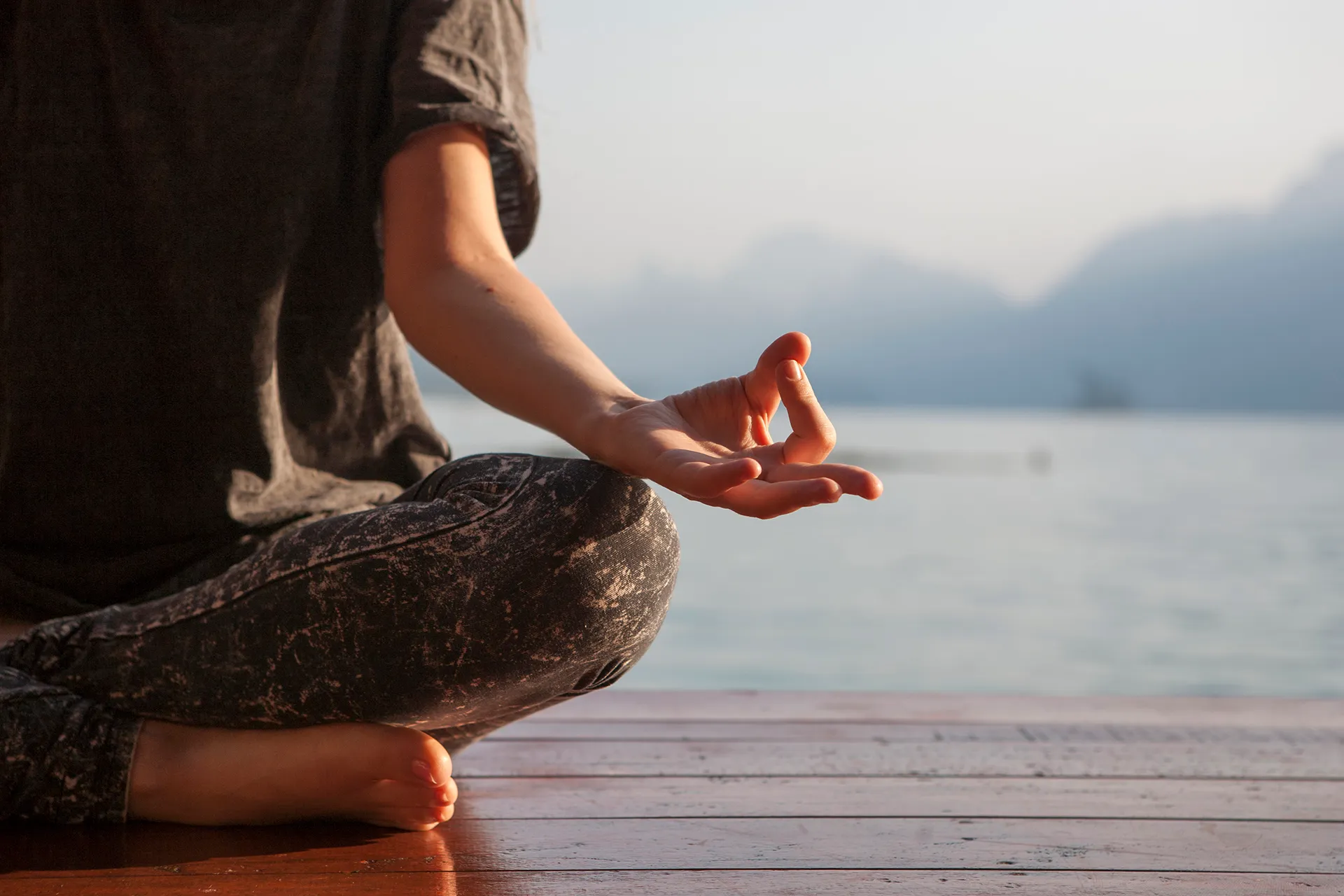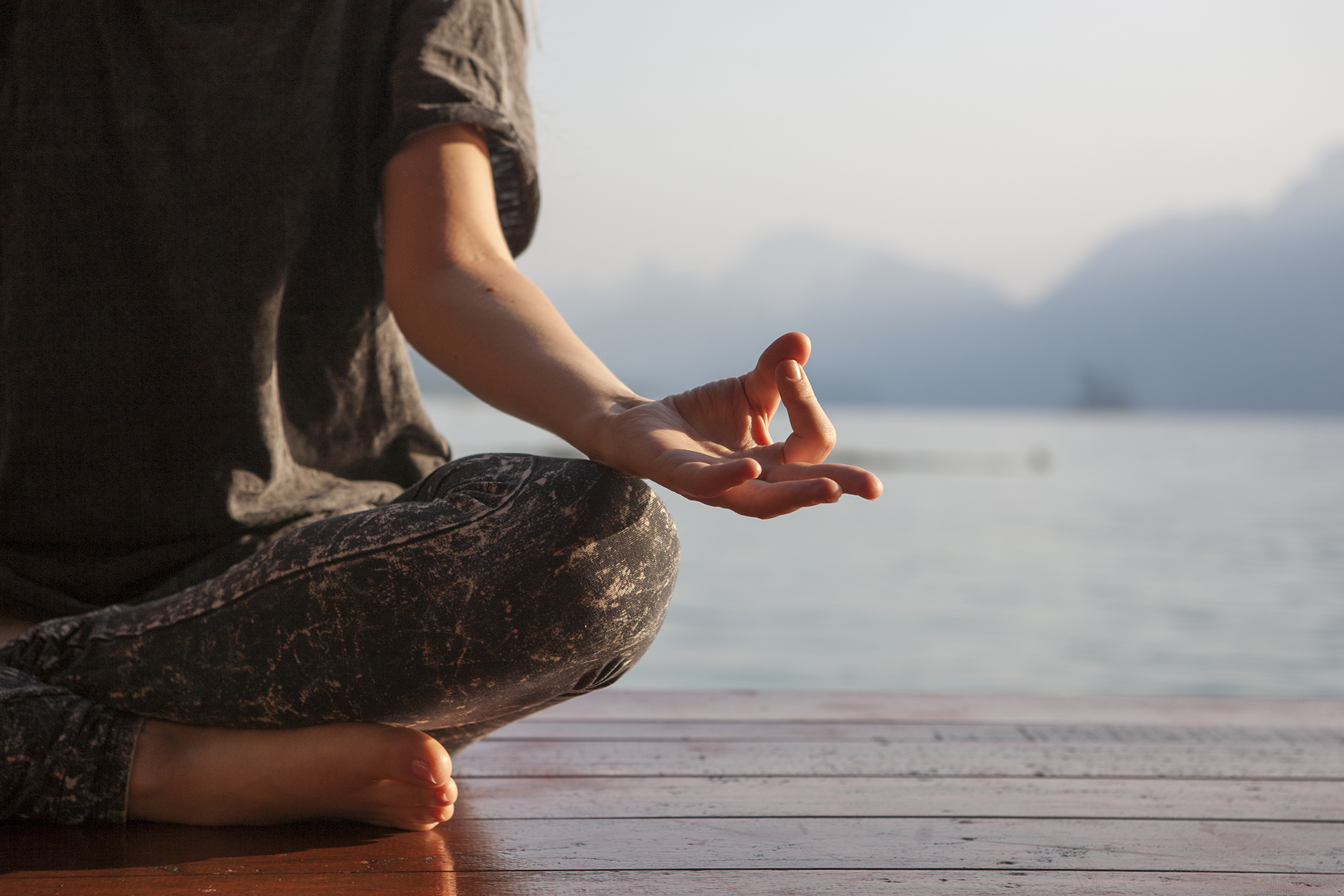Psychiatrist | 6 min read
The Beginner's Guide to Meditation: A Summary of Benefits, Types and Steps
Medically reviewed by
Table of Content
Key Takeaways
- Anyone, regardless of age, sex and spiritual inclination, can start meditating
- There are numerous types of meditation techniques for beginners to choose from
- Meditation has huge benefits for your psychological well-being
Meditation is the practice of focusing all your attention to achieve a calm emotional and mental state. It does not mean clearing your head of all thoughts or about becoming a new person; meditation aims to focus on whatever thoughts cross your mind and increase awareness about these thoughts, without judging them. It uses certain techniques and tools to achieve this.
Benefits of Meditation
Meditation is known to have a large number of benefits on your psychological well-being. Even basic meditation for beginners when done consistently can have long-term effects on your mind. Some of the things that meditation helps you achieve include:
- Reduction in stress
- Improvement of emotional health
- Increase in concentration and attention span
- Improvement of sleep
- Increase in patience
- Reduction of anxiety and depression
- Improved focus on the present
- Building of self-awareness
- Gaining better perspective on situations in your life
- Boosting of creativity
- Increase in tolerance levels
In addition to the above, studies have shown that regular meditation can also reduce symptoms of aches in muscles and joints, improve cardiovascular health and reduce blood pressure.
Types of Meditation
There are many types of meditation practices. Here’s a look at a few of these.
Transcendental Meditation
This is a structured type of meditation and involves repeating a mantra or a set of words.
Mindfulness Meditation
This form of meditation is not about clearing the mind. In fact, it involves focusing your attention on the present and being aware of all the things going through your mind. Mindfulness meditation for beginners is a good place to start as you don’t need an expert or a teacher to guide you and it can be practised on your own. With mindfulness, beginners can become intensely aware of what they’re sensing and feeling and are thus, able to understand more completely who they really are.
Vipassana Meditation
Similar to mindfulness meditation but more specific, vipassana meditation consists of observing your emotions and thoughts as they come, without judgement or reaction. Vipassana meditation for beginners needs to be done by sitting cross-legged on the floor in a quiet space while focusing on your breath and what you feel.
Focused Meditation
This involves concentrating any of your five senses on an internal or external influence. For example, as an internal focus on your breathing, or using external influences such as counting neck beads, focusing on a candle flame, etc. While it sounds simple enough, this can be a difficult form of meditation for beginners as you need to hold your focus for longer.
Movement Meditation
This is meditation in an active form, where gentle motions help you focus on your breathing and heartbeat, such as walking on a patch of grass, gardening, or simply sitting on a beach and watching the sand pass through your fingers. Incorporating yoga, meditation for beginners combined with the asanas and breathing techniques also contribute as movement meditation.
Rajyoga Meditation
This form of meditation is done without any mantras and is practised with open eyes, making it versatile and easy to practise. Its aim is to help you understand yourself better. If you’re just starting out, try raj yoga meditation for beginners as it is simple enough for anyone to practise.
Additional Read: Importance of Yoga
How to Meditate: A Beginner’s Guide to Meditation
While meditating may look simple enough, it actually does take practice to calm the mind. Wondering how to begin as a first-timer? Here are meditation steps for beginners that you can follow to get started on your meditation journey.
Step 1. Find a Peaceful Spot
Take a seat on a chair or a floor cushion with your back against the wall. Ensure that you are comfortably seated, and it is quiet around you.
Step 2. Set a Timer/Time Limit
Begin with 5 minutes and then work your way up to 10, 15 and then 20 minutes. This could take a few days to a few months to achieve. Avoid worrying about getting in more minutes. Instead, take your time and go at a slow pace.
Step 3. Focus on your Breathing
Breathe as you normally would, in and out from your nose, and keep the mouth closed. You can leave your eyes open or closed, as you continue to inhale and exhale. Focus on your breathing pattern, and the gentle rise and fall of your chest.
Step 4. Notice your Mind Wandering
Naturally, your mind will wander to other thoughts and events. Without trying to blank out or judge your thoughts, bring your attention back to your breathing. This might happen again after a few breaths, but the aim is to keep coming back.
Step 5. End with Kindness
Once you feel ready, open your eyes (if closed). Notice your surroundings, be it a sound you hear or something that you see. Give yourself a couple of minutes and think about how you feel and the sensations in your body right now. Move your body in a gentle way and only then get up.
If you’d like some assistance, there are a number of apps and websites that can help you with meditation. You can opt for guided meditation for beginners that talk you through the entire process. If you’re looking to get more in-depth information on meditation for beginners, Jack Kornfield is a trusted teacher and author who has put together books and instructional audio/video pieces on a guided meditation with step-by-step instructions as well. You can always boost your practice with such sources of help.
Additional Read: Yoga for EyesHow do I know if meditation is working for me?
Meditation doesn’t offer quick results. It does not offer physical signs such as sweating post a gym workout. The key is to keep at it consistently, taking it slow and steady. You will begin to notice subtle shifts in your thought process, and in your reactions to events happening around you. In addition, you will begin to feel calmer and more relaxed over time. Sometimes you may not notice these changes, but it may be someone else around you who points it out to you because they’ve noticed a difference in you. All it takes is giving meditation a chance!
While meditation is known to offer a number of health benefits, it may be prudent to keep a check on any health risks you are prone to and take the advice of doctors in case you need treatment. From getting health check-ups to booking the right specialists for your needs, you can rely on the Bajaj Finserv Health. Schedule in-person appointments and video consultations, and also get access to health plans and avail deals and discounts from partner clinics and labs.
References
- https://www.ingentaconnect.com/content/sbp/sbp/2009/00000037/00000003/art00003
- https://www.sciencedirect.com/science/article/abs/pii/S0362331903000430
- https://www.cambridge.org/core/journals/behaviour-change/article/abs/benefits-of-mindfulness-meditation-changes-in-emotional-states-of-depression-anxiety-and-stress/16CEFE3661C9173067A32827CE8F6010
Disclaimer
Please note that this article is solely meant for informational purposes and Bajaj Finserv Health Limited (“BFHL”) does not shoulder any responsibility of the views/advice/information expressed/given by the writer/reviewer/originator. This article should not be considered as a substitute for any medical advice, diagnosis or treatment. Always consult with your trusted physician/qualified healthcare professional to evaluate your medical condition. The above article has been reviewed by a qualified doctor and BFHL is not responsible for any damages for any information or services provided by any third party.





